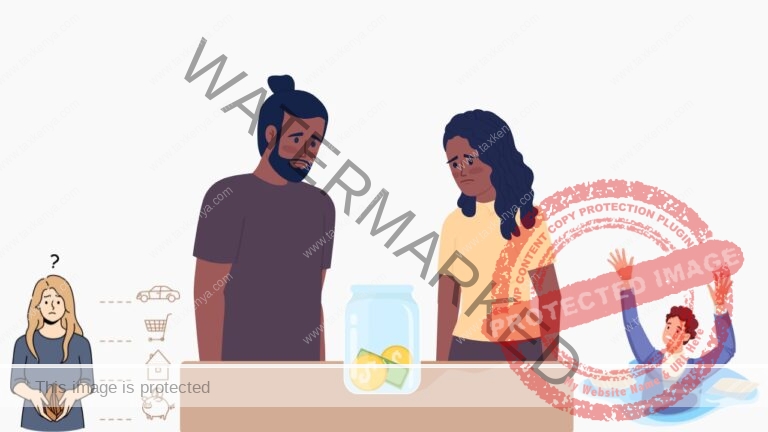Introduction
There are three types of VAT refunds: normal refunds, refund of tax paid in error and refund of tax due to bad debts. The question is where do these refund claims originate from?
Taxable supplies
All refund claims are from business transactions. And, those business transactions give the name to the type of refund. Taxpayers sell goods and services on credit or cash. Credit sales are made with a promise to pay shortly.
That near future depends on whether the customer or client will have cash available cash and also the credit period given by the supplier. The hope is that there will be money and goodwill to pay. The sales are purely on a trust basis.
There are two types of credit customers:
- Those who hope to have the money and will make payments.
- Those who will have money but have no intentions whatsoever of paying for the supplies.
Customers or clients who fail to pay their debts fall in either of the two categories. However, sometimes it is difficult to tell who will pay for their credit purchases and who will not.
This is largely because payments for trade debts are in the future. We all know that the future is uncertain and it comes with new things.
Tax point
In Kenya, VAT like all other taxes is on accrual basis. This means that as long as a person has made a sale whether on credit or cash basis, then VAT is due on the date of the supply which is referred to as the tax point.
The VAT Act is specific on the date of supply. The date of supply is the earliest date of either of the following:
- Invoice date.
- Date service is performed.
- Date of delivery.
- Date of receipt of payment whether part or full.
- In the case of the construction industry and other civil works, the date of the certificate.
This date is when the VAT is due and payable even though remitting of the VAT may be delayed up to the 20th day of the following month.
This means that VAT-registered persons are required to remit VAT irrespective of whether they have received payment from their customers or clients when the tax is due.
Tax Act provisions
There are cases where VAT registered persons pay VAT and the credit customers or clients delay or never pay for the supplies.
What does the VAT-registered person do?
Since this is a normal business occurrence, the VAT Act (2013) has provisions for refund of the VAT amount in the bad debt. The Income Tax Act Cap 470 has provisions for utilizing the amount of bad debts when determining taxable income.
What is bad debt?
Bad debt is a debt that has taken some time without being paid. The bad debt may or may never be paid. Both the VAT Act and the Income-tax Act have time-frames within which a debt is declared as a bad debt.
Bad debts that qualify for VAT refund
For VAT purpose, a registered taxpayer can only apply for a refund of the VAT component in bad debt. However, there are conditions for the VAT in the bad debt to qualify for application of the refund.
The following are some of the conditions for the VAT in the debt to be claimed.
- Supply made – the supply should have been made. The evidence for this is invoices, delivery notes, job cards etc.
- Accounted for the VAT – the VAT is accounted for by issuing a tax invoice, keeping records, deducting input VAT and making VAT returns.
- Paid the VAT to the Commissioner on the supply – the correct amount should have been paid and paid on time.
- No payments received from the person liable to pay the VAT.
- The Commissioner may also ask for proof of effort to recover the debt.
Proof of attempts to recover bad debts
There are various actions that the taxpayer will have taken that indicate proof of attempts to recover the bad debts:
- Communication between the taxpayer and the customer/client over the overdue debt.
- Attempts to collect the debt e.g. letters from the local area chief, emissaries etc.
- Enforcement actions such as sending auctioneers.
- Police reports etc.
- Legal attempts to collect the debt e.g. letters from lawyers, court cases etc.
This list is not exhaustive. There are many other ways to prove that there were attempts to collect the debt.
Conditions for refund
It is not for every bad debt that a person is entitled to recover the VAT. There are three conditions that the application for refund based on bad debts will be accepted:
- A debt is a bad debt after three (3) years from the date the supply was made.
- No application for refund is allowed after five (5) years since the date of the supply.
- Application is also allowed where the person (customer or client) has become insolvent.
However, there are two important things that every taxpayer should note:
- There is no provision for time extension beyond the five (5) years since the date of supply.
- The Commissioner’s decision to refund the VAT on bad debt is final.
Subsequent recovery
In case the taxpayer subsequently recovers the bad debt and the VAT, the person should refund the Commissioner the VAT amount within thirty (30) days from the date of the recovery.
However, if the taxpayer fails to refund the VAT amounts, this will attract interest at the rate of two (2) per cent per month or part of the month.
What does a taxpayer do?
In case a person has not received payment for three years since the date of supply and before the end of five years, the taxpayer should apply for a refund of the VAT amount in the bad debt.
The application is lodged through I-tax. The refund claim is processed and paid depending on availability of funds.
Application of the refund amounts
In case the refund is processed in KRA and found to be payable, the VAT amounts will be applied as follows:
- Settle any outstanding VAT debts.
- Settle any other outstanding tax debts in other tax heads such as income tax debts.
- Any balance will be refunded to the taxpayer.
For the amount to be refunded to the taxpayer, the person can choose to either:
- Receive the refund in cash in which case the refund is remitted to their bank accounts or
- The amount to be credited in their ledger to pay future tax debts such as PAYE or personal income tax or corporate income tax.
Conclusion
Since the VAT Act provides for refund of the VAT amount in bad debts, any taxpayer who is owed debts that are beyond three (3) years or whose customers or clients have become insolvent should apply for the refund of the VAT component provided the bad debts meets the conditions listed here.
OUR CALL! Remember to:
a. SUBSCRIBE to this Website and YouTube Channel – TaxKenya Shows.
b. LIKE videos on our YouTube Channel- TaxKenya Shows.
c. Leave a COMMENT on this Website and YouTube Channel- TaxKenya Shows.
Feel free to send us tax and investments in Kenya questions or topics via email taxkenya@gmail.com that you would wish to be covered in this Website.
Remember to:






